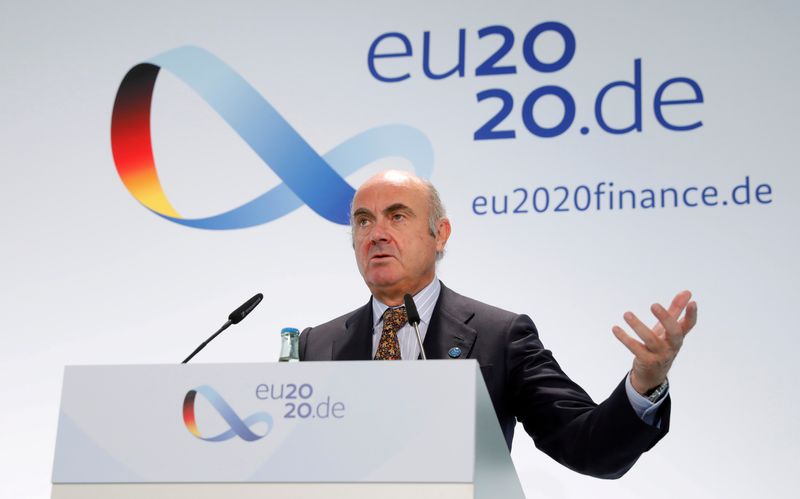MADRID (Reuters) - The European Central Bank needs to focus on bringing inflation down to its 2% mid-term goal and therefore keep raising interest rates despite a deceleration in the pace of price rises in November, ECB Vice-President Luis de Guindos said on Friday.
"Inflation is starting to decelerate, but that deceleration has to be stable," De Guindos told a financial event, adding that inflation could hover around 7% by mid-2023.
His comments came after inflation in the euro zone eased far more than expected in November, raising hopes that sky-high price growth is now past its peak of more than 10%.
De Guindos said, however, that the ECB should avoid an "M-shaped evolution of inflation" where it would accelerate again after slowing down, as well as avert its stabilisation clearly above 2%.
"Our fundamental objective, our mandate is to bring inflation to our definition of price stability, which is 2%," De Guindos said, adding that the ECB was expected to raise interest rates further at this month's monetary policy meeting where it would also decide on how to reduce its balance sheet.
Consumer prices in the 19 countries sharing the euro grew by 10% year-on-year this month, after a 10.6% increase in October.
The ECB has raised rates at its fastest pace on record this year and a string of hikes over the coming months is still likely as price growth will take years to tame.

But some policymakers have recently made the case for a 50 basis point rise on Dec. 15 after back-to-back 75 bps moves, arguing that inflation is peaking and that the ECB has made enough progress to justify more modest steps.
The ECB has raised its rate on bank deposits from minus 0.5% to 1.5% in three months.